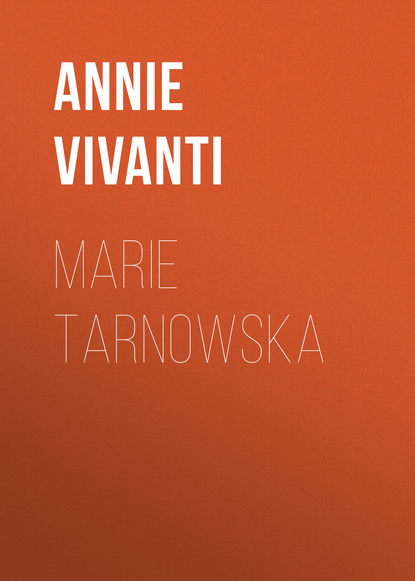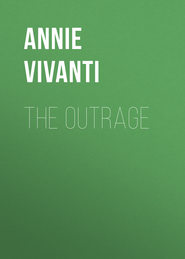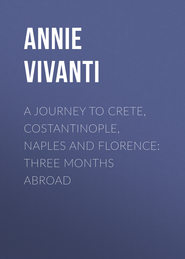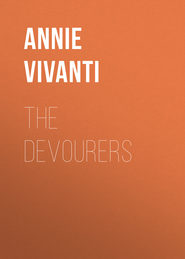По всем вопросам обращайтесь на: info@litportal.ru
(©) 2003-2024.
✖
Marie Tarnowska
Настройки чтения
Размер шрифта
Высота строк
Поля
Paul Kamarowsky was aghast.
“Is everybody trying to steal you away from me, Mura?” he exclaimed brokenly; then he sat down on the sofa with his head in his hands. I gazed at him, feeling as if I should die with sorrow and remorse.
For a long time he did not speak. Then he drew me to him.
“Dear one, do not heed the offers of other people. No one, whether he be prince or moujik, can love you more than I do. No one will do more for you than I am willing to do. I, also, am ready to make a will in your favor; I, also, will insure my life for half a million francs.”
“No, no,” I cried, crushed with misery and shame.
“Oh, yes, I will. It shall be done immediately. To-day.”
And it was done.
“You see?” cried Prilukoff triumphantly, “I am not quite a fool yet, am I? Hush now, don't cry. Remember that it is not for ourselves, but to make an honorable act of restitution.”
“But a hundred thousand francs would have been enough for that,” I sobbed.
“The other four hundred thousand we shall give to the poor,” said Prilukoff. “It will be a meritorious deed.”
XL
I remember that when I was a child I was taken to a fair and given a ride on a switchback railway. I was scarcely seated in the car, with the straps round my waist and the giddy track before me, than I cried to get out again. But the car was already moving forward, slowly gliding down the first incline.
I screamed, writhing against the straps, “Stop! stop! I want to get out. I want to go back!” But now the car was rushing giddily, in leaps and bounds, down one slope and up another, whirling over bridges and gulfs, dashing down the precipitous declivity with ever-increasing speed.
Even thus had I embarked, almost without realizing it, upon the rapid slope of crime. Impelled by my own madness, I had started on the vertiginous course to perdition, and now I plunged downwards, rolling, leaping, rushing into the darkness, without possibility of pause or return.
It was Kamarowsky himself who begged me to leave Venice for Kieff, where some formalities still remained to be accomplished before our impending marriage. He offered to accompany me, but I declined. He resigned himself, therefore, though with reluctance, to allowing me to start alone with Elise.
“Now,” said Prilukoff, on the eve of my departure—and the transversal vein stood out like whipcord on his forehead—“let there be no more backing out and putting off. You will see Naumoff in Russia; send him straight back here. I'm sick of this business; let us get it over.”
I bowed my head and wept.
Kamarowsky took me to the railway station, where I found the compartment he had reserved for me already filled with flowers. I thanked him with trembling lips.
“In three weeks, my love,” he said, “you will be back again, and then I shall not part from you any more.” He kissed me and stepped down upon the platform, where he stood gazing up at me with smiling eyes. Many people stood near, watching us. I leaned out of the carriage window, and as I looked at him I kept repeating to myself: “This is the last time I shall see him! The last time!”
It seemed strange and incongruous to see him there, with his usual aspect, making ordinary gestures and uttering commonplace remarks. Knowing as I did that he stood on the threshold of death, I wondered that he had not a more staid and solemn demeanor, slower, graver gestures and memorable words.
Whereas he was saying, with a smile: “Mind you don't lose your purse; and remember to look after your luggage at the Customs. You will have the dining-car at Bozen.” And then, looking about him: “Would you like some newspapers?” He hurried away after the newsvendor, and then counted his change and argued about a coin which he thought was counterfeit. He came back to my carriage door, handed me the newspapers, and with his handkerchief dried his forehead and the inside of his hat.
“Fearfully hot,” he said, looking up at me with a friendly laugh.
All this seemed terribly out of keeping with the tragic situation of which, all unconsciously, he was the hero. I tried to say something tender and affectionate to him, but my agitation stifled me.
“Mind you are good,” he said, still smiling, and he threw a glance at some officers in the compartment next to mine.
I heard the doors being shut and the guard calling out “Partenza!” My heart began to beat wildly. I felt as if once again I were strapped in the car on the switchback railway. I wanted to get out, to stop, to turn back. A whistle sounded and a gong was struck.
“Well, Mura, au revoir,” cried Kamarowsky, stretching up his hand to me. “A happy journey and all blessings.”
I leaned out as far as I could—the bar across the window hindered me, but I managed to touch his outstretched hand with the tips of my fingers.
A spasm caught my throat. “Paul, Paul!” I gasped. “Oh, God, forgive me!” A shrill whistle drowned my voice as the train moved slowly forward.
He must have seen the anguish in my face, for he cried anxiously:
“What? What did you say?” Now he was running beside the train, which was beginning to go faster.
I repeated my cry: “Forgive me! Forgive me!” and stretched out my arms to him from the window.
He shook his head to show that he had not understood. The train was throbbing and hastening.
He ran faster beside it. “What—what is it? What did you say?” But the train was gaining speed, and he was obliged to stop. He stood there, erect and solitary, at the extreme end of the platform, following with perplexed and questioning gaze the train that was carrying me away.
It is thus always that I see him in my memory—a solitary figure, gazing at me with perplexed and wondering eyes.
Surely it is thus, thus wondering and perplexed, that he must have looked in the face of death and treachery, on that summer morning when he was struck down by the hand of his friend.
The switchback plunges downward in its mad race to the abyss—the end is near.
At Kieff, as arranged, I meet Naumoff.
I sob out my despair to him. Paul Kamarowsky must die. I give no reason, I explain nothing; I repeat unceasingly the three words: “He must die,” until there seem to be no other words in the world—until the universe seems to ring with those three words: “He must die!”
Naumoff recoils from me, pale-faced and horrified. Then I drive him from me, crying: “Go, you are a coward. Let me never see you again!”
“But why should he die?” cries Naumoff. “What has the poor man done to you?”
Ah, what, indeed, has the poor man done?
Ramblingly, incoherently, I try to explain to Naumoff; I tell him of Tioka and his illness, of my vow.... He listens amazed, without comprehending.
“But Mura, Mura! This is delirium, this is madness. You are ill, you are out of your mind. How can such an insensate idea possess you? How can you imagine that God would demand such an iniquity?”
Then I rack my brain for arguments that will convince him. I invent all manner of falsehoods; I repeat the tale of insults and outrages that I have endured at the hands of Kamarowsky; I accuse him of violence and brutality … and even as I tell these mad stories they seem to myself to be true. I am thrilled by my own words; I tremble, I weep convulsively; and Naumoff, ever more pale, ever more bewildered, does not know what to believe.
Continually, a dozen times a day, blind to all caution, reckless of all consequences, I send telegrams to Prilukoff—the telegrams that afterwards were found, and led to our arrest—“Berta refuses.” (Prilukoff, I know not for what reason, had nicknamed Naumoff “Berta.”) Then again: “Berta will do it.” And again: “Berta irresolute. What am I to do?”
Then seized by sudden panic: “Wait! Do no harm to any one. Advise me. Help me. I am going mad.”
Prilukoff telegraphs back his usual set phrase: “Leave it to me.” And he forthwith proceeds to send me a number of telegrams, all of which contain a series of insults and taunts addressed both to Naumoff and to myself. He signs them “Paul Kamarowsky.” Naumoff reads them in amazement, then in anger; finally he, too, becomes possessed of the idea of crime, obsessed by the frenzy of murder.
How can I tell the terrible story further?… The gust of madness caught us in its whirlwind, dashing us round like leaves blown in a storm.
One evening—it was a pale, clear twilight at the close of August—I sprang suddenly to my feet, and winding a black veil round my hair, I ran from my rooms and down the wide shallow flights of the hotel staircase. There were large mirrors on every landing. As I descended I saw at every turn a woman coming to meet me, a tall, spectral creature with a black veil tied round a white, desolate face … her light, wild eyes filled me with fear, and I hurried forward to reach the hall, where I heard voices and music.
Standing beside the piano in the vast lounge, two young girls were singing; they were English girls, and they sang, with shy, cool voices, a duet of Mendelssohn:








